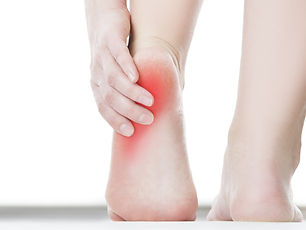Pain treatment

Shoulder and neck pain
The muscles around the shoulder and neck are tense for a long time, and it is difficult to turn your head. If the condition is severe, symptoms such as headache, dizziness and tinnitus may occur. As the condition worsens, the patient may develop bone spurs, which affect the nervous system and cause numbness, pain and even weakness in the upper limbs.

Frozen Shoulder (Periarthritis of Shoulder)
The main cause of frozen shoulder is inflammation of the shoulder capsule, which may even cause adhesions, causing shoulder pain and inability to lift, thus affecting many daily activities. The main symptoms include shoulder pain and stiffness, which limits shoulder mobility. In addition to unilateral shoulder pain, the pain may extend to the upper arm and even the neck, and may worsen at night, affecting sleep quality.

Sciatica
Sciatica usually causes pain in the lower back and tailbone, but pain in the hips or legs may also be associated. The pain may be constant and accompanied by tingling, burning, or electric shock-like sensations, and may even cause weakness and numbness in the lower limbs. In severe cases, it may also hurt when you sneeze, cough, or sit down.

Herniated disc
You may experience numbness, soreness, or abnormal sensations such as heat or tingling extending from your buttocks to your calves or feet. If the nucleus pulposus of the intervertebral disc is severely herniated, it may directly compress the nearby spinal nerve roots, causing leg or foot muscle cramps, weakness and other symptoms.

Luxury Bag
In the early stages of their formation, a cheiloma usually does not cause pain. Patients may only experience difficulty in tilting their heads back and a reduced range of motion. Over time, shoulder and neck pain and upper back pain may occur, and numbness and weakness may also occur in the cervical spine and arms. If the cheiloma does not improve, long-term compression of the cervical vertebral arteries may affect the blood supply to the brain, leading to dizziness and headaches. If the condition continues to worsen, the ability to carry out daily activities will be affected, and the risk of paralysis may even increase.

Mother's Hand
Patients with "Mom's Hand" will feel tightness in the muscles from the thumb to the wrist when they flex their thumb, twist their wrist, or perform grasping movements. If overused for a long time, symptoms such as pain and difficulty in moving the thumb may occur. If the strain persists and is not properly treated, the pain will worsen and the muscles of the thumb may become swollen or even so painful that they cannot move.

Plantar Fasciitis
Plantar fasciitis is a common foot condition that is caused by inflammation of the plantar fascia due to overuse or stress. The plantar fascia is a thick band of tendon that runs from the heel to the toes and is responsible for supporting the arch of the foot and absorbing shock. When this fascia is overstretched or stressed, it can cause pain and discomfort, especially with the first step in the morning or after sitting for a long time.

Low back pain
The back muscles are constantly tense and painful and difficult to relax. When standing or sitting for a long time, the back muscles will feel tense, sore, and even painful. In addition, the buttocks and thigh muscles are also prone to fatigue, numbness, and pain.

Joint pain
People with arthritis usually experience pain when moving the joint. They may also experience swelling in and around the joint, which can be worse at night. In addition, they may experience temporary stiffness when moving the joint in the morning or after a period of rest, and a feeling of looseness and instability.

Knee pain
Knee pain is a painful symptom that can be caused by damage to the bony structures of the knee joint, kneecap, ligament or cartilage. The pain is usually located at the front of the knee, just below the kneecap or deep in the knee joint. Common symptoms also include pain, swelling and a clicking sound in the knee.

